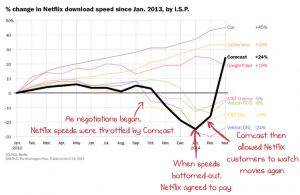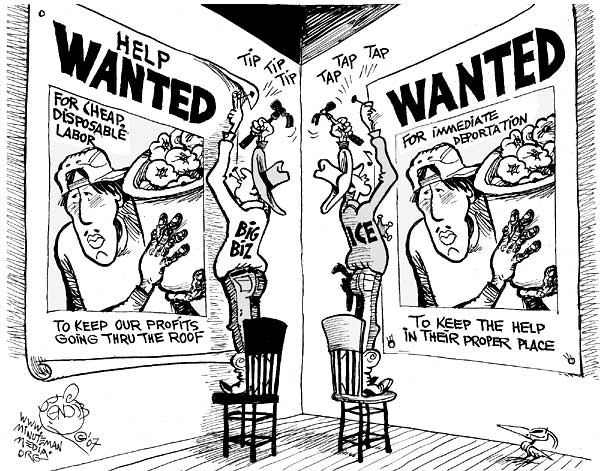Above, President Obama explains his support for net neutrality and why you too should support it.
Net Neutrality is the idea that Internet Service Providers (ISPs) should not be able to restrict people’s access to various websites. If Net Neutrality is not followed, ISPs can use their ability to restrict or slow connections (often called “throttling”) to websites to solicit money from these websites in order to guarantee a fast connection.
Earlier today, I was linked this blog, The Oatmeal, in which the author calls out US Senator Ted Cruz who tweeted:
"Net Neutrality" is Obamacare for the Internet; the Internet should not operate at the speed of government.
— Senator Ted Cruz (@SenTedCruz) November 10, 2014
In this open letter to the Senator, the blogger humorously takes the stance of attempting to educate Cruz about Net Neutrality and why it is important to support it, as it is instrumental in keeping the Internet a free and fair place for individuals and companies alike. The Oatmeal paints it as the bipartisan issue it is, as it is unnecessary to attempt to divide the country over an issue everyone should support, while also pointing out the absurdity of comparing Net Neutrality to Obamacare.
However, it is also pointed out that the Senator accepted a lot of money from telecom giant Comcast in support of his campaign for senator, and that Comcast has already abused throttling in order to force Netflix to pay them millions of dollars and of course would oppose net neutrality.
Overall, this blog post has emphasized two issues that I believe will be incredibly important in American politics over the next several years. One, will Americans fight to preserve the Internet as a bastion of independence and freedom? And two, will the American public continue to allow corporations to buy off politicians through “campaign money” or will they use their votes to preserve the sanctity of the American democracy.
Works Cited:
http://theoatmeal.com/blog/net_neutrality
https://www.aclu.org/net-neutrality
http://consumerist.com/2014/03/11/comcast-goes-on-capitol-hill-spending-spree-in-advance-of-merger-hearings/











